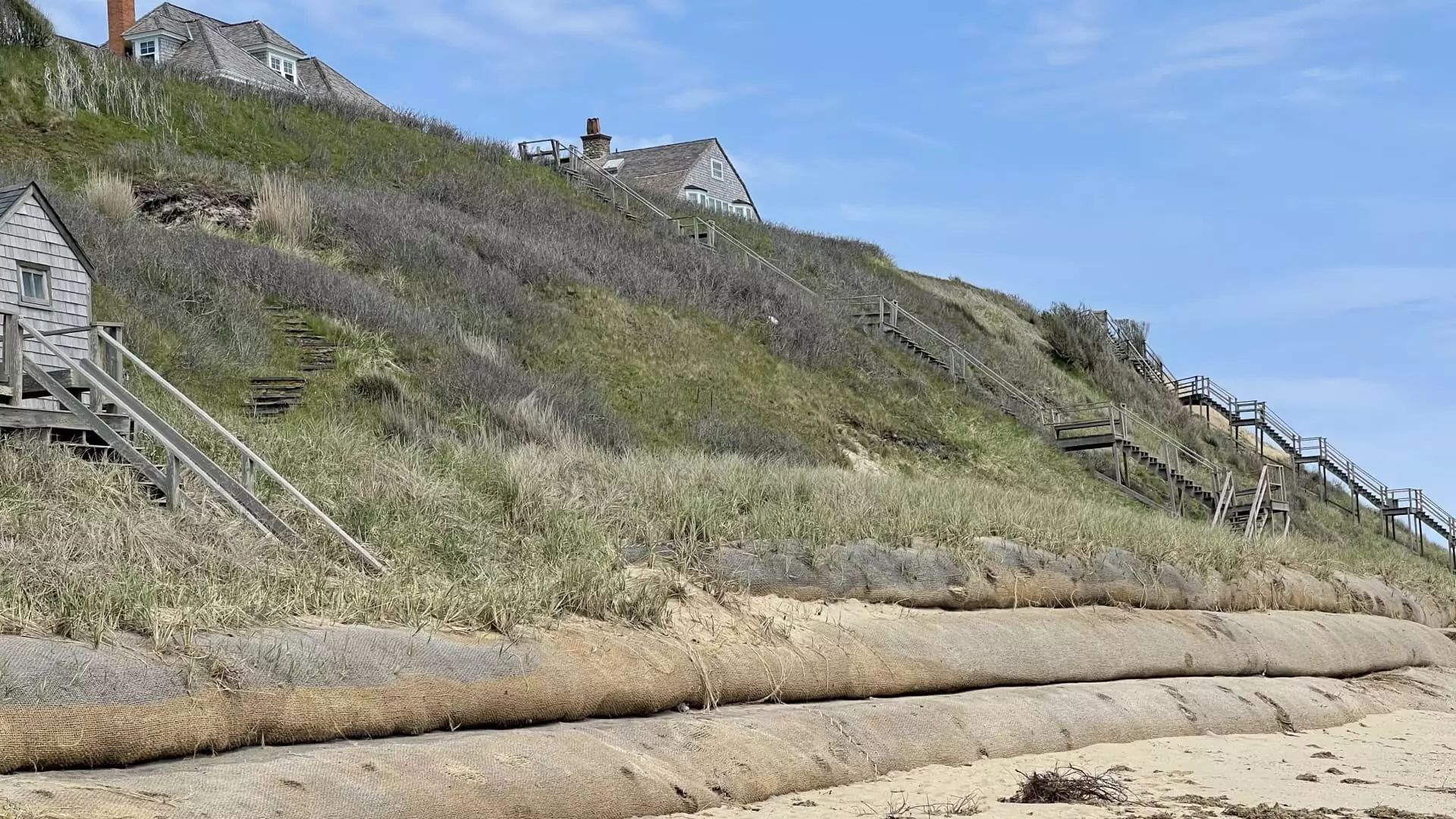As the effects of climate change continue to become more apparent, coastal real estate is facing unprecedented challenges. From California to New York, coastal properties are experiencing heightened risks of flooding and erosion. The recent hurricane season has already begun, with above-normal activity predicted, leading to concerns about the future of coastal real estate.
The impact of climate change on coastal real estate values is already being felt in places like Nantucket, where a home listed for $2 million sold for just $600,000 due to beach erosion caused by sea-level rise and extreme weather events. Real estate agents like Shelly Lockwood are witnessing the declining value of properties at risk and are taking steps to educate both homeowners and fellow agents about the potential risks involved.
On the eastern end of Long Island in Montauk, multimillion-dollar homes are facing immediate threats from rising sea levels and severe storms. Residents are struggling to protect their properties from increasing flooding and erosion, leading to uncertainty about the future value of their homes. Concerned Citizens of Montauk are working to address the challenges posed by climate change and protect the community from further damage.
The economic implications of climate change on coastal real estate are significant. Data from First Street reveals that over 77,000 properties in high-value coastal areas are at risk of flooding, amounting to potential losses of around $100 billion. Real estate attorney Chris Farley is assisting Nantucket homeowners in dealing with decreasing property values and rising property taxes, as the erosion of beaches and cliffs continues.
Individual homeowners like John Conforti are experiencing firsthand the devastating effects of climate change on their properties. As sand levels rise and erosion worsens, homes are being buried while property values plummet. The rapid pace at which these changes are occurring is alarming, with some homeowners facing the possibility of losing everything they’ve invested in their homes.
With the ongoing threats posed by climate change, communities like Nantucket and Montauk are reevaluating their coastal resilience plans. The outdated strategies put in place after Superstorm Sandy are no longer sufficient to protect coastal properties and residents from the increasing risks. It is becoming clear that immediate action is needed to address the challenges posed by climate change on coastal real estate.
The impact of climate change on coastal real estate is a pressing issue that requires urgent attention and decisive action. The erosion of property values, loss of homes, and economic repercussions all underscore the need for proactive measures to mitigate the risks posed by rising sea levels and extreme weather events. It is essential for communities, homeowners, and policymakers to come together to address this growing crisis and protect the future of coastal real estate.

